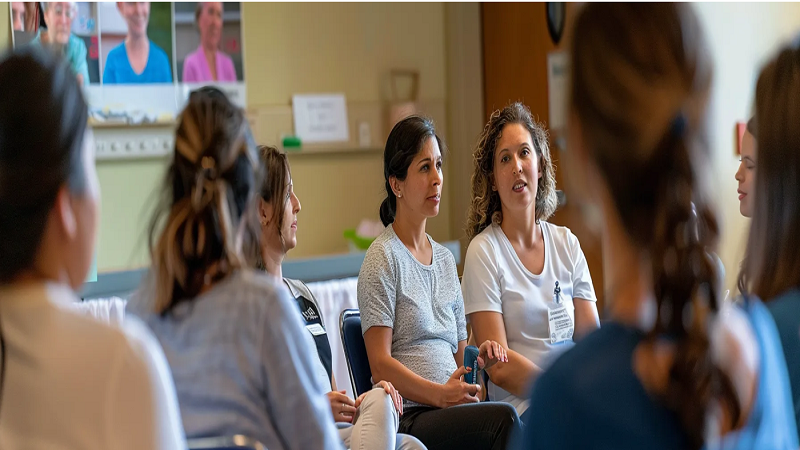Maternity care is a pivotal component of healthcare that profoundly influences the well-being of both mother and child. Access to quality prenatal care is essential for monitoring the health of the expectant mother and developing fetus, managing any complications, and providing the foundation for a healthy pregnancy. By offering comprehensive support and medical attention, maternity care plays a crucial role in fostering positive pregnancy outcomes and experiences. Understanding the various facets of this care can empower expectant mothers to make informed decisions. Below, we delve into the multifaceted world of maternity care and its vital impact on families.
The Role of Regular Health Check-Ups in Early Detection and Prevention
Regular health check-ups during pregnancy serve as the first line of defense against potential complications. Through these visits, healthcare professionals can monitor vital indicators such as blood pressure, weight, and fetal heart rate. This consistent monitoring is key in identifying abnormalities that may indicate an increased risk for conditions like gestational diabetes or preeclampsia, enabling timely intervention.
Screenings and tests offered during prenatal check-ups are instrumental in detecting genetic conditions and infections that could affect the baby’s development. Conditions such as Down syndrome and congenital heart defects can be identified through ultrasounds and blood tests. Knowledge of such conditions before birth allows parents and healthcare providers to prepare for specialized care if needed.
Regular check-ups also serve to build a trusting relationship between the expectant mother and her healthcare team. This rapport is vital, as it ensures that mothers feel comfortable sharing their concerns and are more likely to follow medical advice, leading to healthier outcomes. An obgyn Manhattan can be a valuable partner in this ongoing health journey, providing localized and personalized care to women in the heart of the city.
Key Components of Comprehensive Maternity Care Services
Comprehensive maternity care involves a multidisciplinary approach, including various services and medical professionals. One of the main components of this care is routine prenatal visits, which allow healthcare professionals to track the pregnancy’s progression and respond to any emerging health concerns. Ultrasounds and diagnostic tests are indispensable tools for assessing fetal health and development.
Nutritional counseling and weight management form another cornerstone of maternity care. Pregnant women receive tailored advice on their diet and supplementation to ensure that both they and their unborn child get the necessary nutrients. This aspect of care is vital for preventing birth defects and promoting optimal growth.
The Impact of Prenatal Education on Pregnancy Outcomes
Prenatal education is a potent tool for empowering women and their families to take an active role in the pregnancy journey. Being informed about the changes occurring in the body, understanding the stages of fetal development, and recognizing the signs of labor can equip mothers-to-be with confidence and readiness for childbirth. Moreover, this knowledge facilitates better communication with healthcare providers and adherence to recommended care practices.
Education on proper nutrition, exercise, and lifestyle choices directly affects health outcomes during pregnancy. Pregnant women who are well-informed are more likely to avoid harmful behaviors and to engage in activities beneficial to their health and that of their babies. They are better positioned to make informed decisions that resonate with their personal and cultural values.
Navigating Postpartum Support and Resources for New Mothers
The postpartum period is a critical time that requires ample support and care for new mothers. Navigating the physical and emotional changes following childbirth can be challenging, and access to a support system plays a crucial role in a new mother’s health. Maternity care services offer postpartum check-ups to ensure that the mother’s recovery is on track and to address any complications that may arise. Click here for more details.
Beyond physical recovery, new mothers may face emotional and mental health challenges, such as postpartum depression. Recognizing the signs and offering prompt support and treatment are essential aspects of postpartum maternity care. Having resources like counseling and peer support groups accessible through maternity services can be a lifeline for mothers in need.
Altogether, the uninterrupted thread running through pregnancy and postpartum care is the unwavering support given to mothers, which is integral for a healthy start to motherhood. Overall, thorough maternity care offers invaluable resources and guidance that, when embraced, can lead to rewarding outcomes for families.



